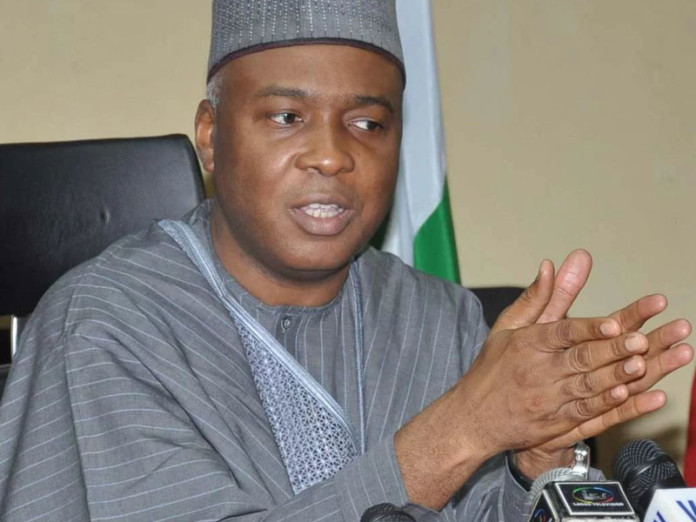The United Nations Children’s Emergency Fund (UNICEF) and Senate President Bukola Saraki are addressing cases on the severe malnutrition afflicting one in five children in Borno State, warning that if nothing is done to reverse the humanitarian crisis caused by the Boko Haram insurgency, 134 children could die every day from starvation.
A statement issued by the UN centre yesterday said about 250,000 children in Borno were suffering from acute malnutrition. Of those, about one in five will die if they do not receive treatment, it warned.
UNICEF said that as Boko Haram is pushed out and more of the North-east area becomes accessible to humanitarian assistance, the extent of the nutrition crisis was becoming more apparent.
“Some 134 children on average will die every day from causes linked to acute malnutrition if the response is not scaled up quickly,” said Mr. Manuel Fontaine, UNICEF Regional Director for Western and Central Africa, who just returned from a visit to Borno State.
“We and all partners and donors have to step forward to prevent any more children from dying. No one can take on a crisis of this scale alone,” he cried out.
Fontaine described the ruins of towns accommodating displaced people, families with little access to adequate sanitation, water or food, and thousands of frail children in desperate need of help.
“There are two million people we are still not able to reach in Borno State, which means that the true scope of this crisis has yet to be revealed to the world,” he stressed.
The situation in the Lake Chad Basin overall has been the subject of discussions at regional dialogues and at the UN headquarters.
Around 3.8 million people are currently facing severe food insecurity across the Basin, where the lean season has now set in in many parts.
In early 2016, UNICEF appealed for $55.5 million to respond to the humanitarian crisis in North-east Nigeria, but has so far only received $23 million, the equivalent of 41 per cent.
Similarly, Saraki yesterday described the scourge of malnutrition in Borno as a Nigerian one, which would be addressed in the Senate. Saraki, who was in Maiduguri, the state capital, to pay a condolence visit to the people of the state over the death of the First Republic minister and first African Head of the Organisation of Petroleum Exporting Countries (OPEC), Alhaji Shettima Monguno, also took time out to visit the centre for the treatment of people suffering from severe malnutrition.
The Senate president, who spoke to journalists at the Maiduguri International Airport after his visit to the treatment centre for the victims of acute malnutrition, lamented that Borno State had been left to carry too much of the burden of the Boko Haram insurgency, adding that it had become pertinent for others to lend a hand.
He said: “I am happy I’m here with the leader of the Senate (Mohammed Ali Ndume). Before we break, we will definitely discuss it (the Borno malnutrition crisis) on the floor and see what we can do. The federal government and all agencies need to step up to the plate. I think it is not good for a country like ours; we are a rich country. It is just an issue of organising ourselves and getting the funds to support the state government. The state has been carrying too much of the load on its own.”
He cautioned that the state government should not be left alone to carry the heavy burden and should be assisted by the federal government, private sector and wealthy individuals all around the country.
“We all need to put in our efforts and see how we can address the situation because it is the women and children that have suffered the most from this. We must do our best to play a role and support the state in doing that,” he said.
The Senate president, who was accompanied on the visit by Ndume, Abubakar Kyari (Borno North), Baba Kaka Garbai (Borno Central) and Adamu Aliero (Kebbi Central), said the visit to Borno was very important, as it offered the team the opportunity to see first hand the extent of the crisis.
On how the Senate would assist in the rehabilitation, reconstruction and resettlement of the people and communities affected by the Boko Haram crisis, he said: “You know we are almost at the final stage of passing the law on the North East Development Commission, we believe that the institutional framework is necessary to start to address the situation and once we pass the bill, the commission can start to work and begin to handle rehabilitation and reconstruction that is important.”
At the treatment centre, Saraki while commending the health workers for treating the malnourished persons, advised Governor Kashim Shettima to invite his colleagues (governors) to see what he has been forced to contend with.











